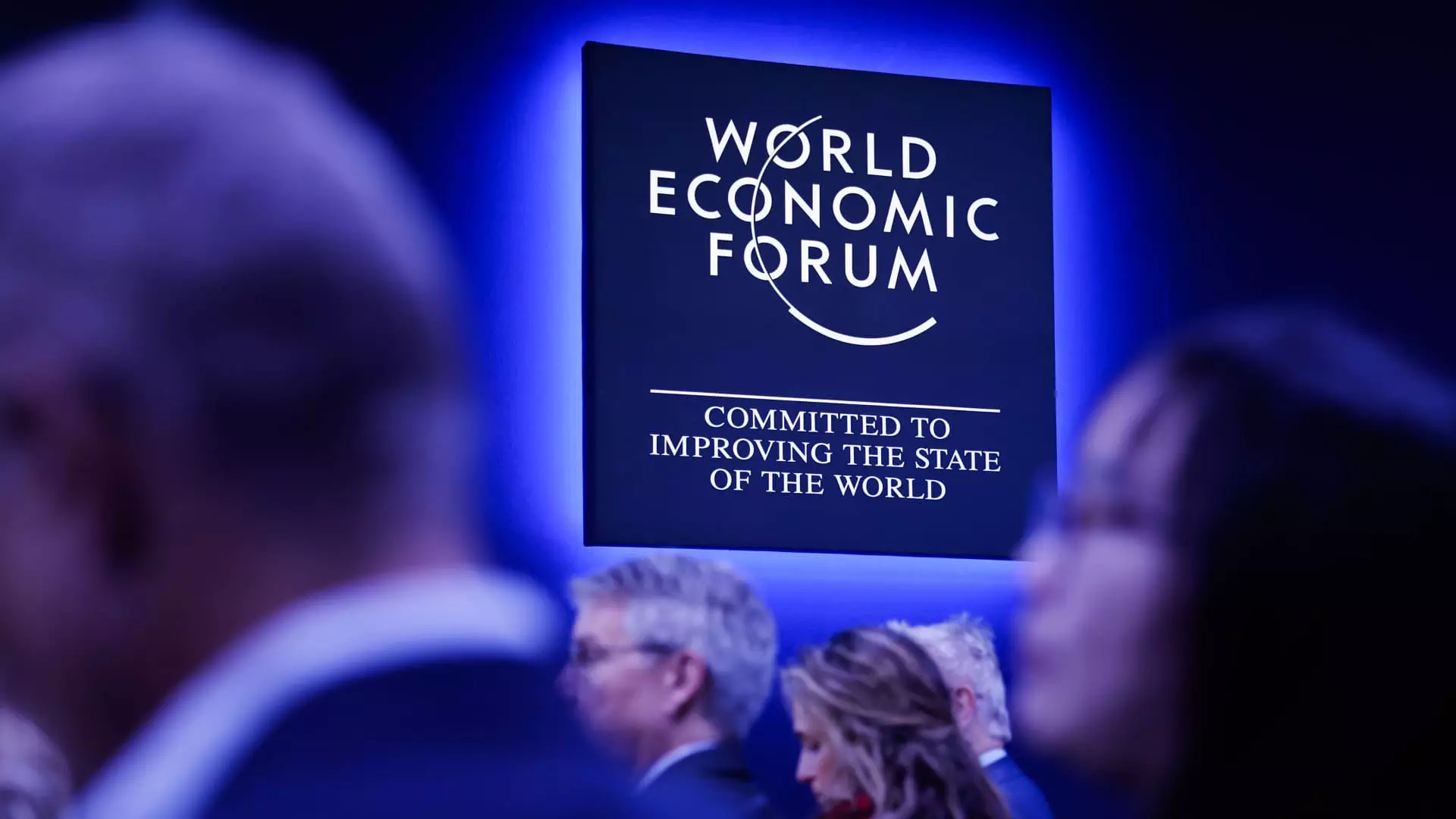In the contemporary landscape of commerce and politics, the concepts of diversity, equity, and inclusion (DEI) have garnered significant attention, particularly during high-profile events such as the World Economic Forum in Davos, Switzerland. This year, these buzzwords resonate with urgency among business leaders and politicians, echoing broader societal changes. However, the conversation is increasingly polarized, reflecting varying interpretations and implementations across industries. Amidst this backdrop, we witness a critical juncture where definitions and practices surrounding DEI are being called into question, warranting a fresh analysis of its implications in both corporate and government spheres.
The political landscape has played a pivotal role in shaping the narrative around DEI. An example can be found in the statements made by former President Donald Trump during a recent virtual address at Davos, where he expressed a desire to eliminate what he termed “discriminatory diversity, equity, and inclusion nonsense.” This assertion underscores the increasing politicization of DEI, with a clear suggestion that the federal government seeks to dismantle existing programs aimed at fostering a more inclusive work environment. By signing an executive order prohibiting certain DEI training and initiatives, the Trump administration has sparked ongoing debates surrounding identity politics and meritocracy, raising concerns about the future of affirmative action.
This shifting political climate reflects a broader skepticism toward DEI efforts, often stemming from a belief that such initiatives may overlook merit in favor of diversity alone. Critics argue that this focus dilutes talent acquisition and can lead to divisions instead of unifying efforts towards a common goal. As corporate leaders navigate this turbulent discourse, they find themselves weighing the potential benefits of DEI against the risks of backlash and misunderstanding.
Corporate Leaders on the Frontlines of Change
Within the corporate world, executive opinions vary significantly on the DEI conversation. Many leaders stand firm in their commitment to enhancing workplace inclusivity, viewing it not merely as a trend but as an integral aspect of corporate culture and performance. For instance, various executives have emphasized the importance of nurturing a diverse workforce, recognizing that diverse viewpoints lead to enhanced problem-solving and innovation. This perspective aligns with substantial research indicating that businesses with more diverse teams often experience improved output, reduced risk, and increased consumer engagement.
In direct contradiction to political rhetoric, these leaders advocate for proactive measures that extend beyond superficial commitments. The sentiment among them seems to be that a genuine embrace of diversity can yield tangible benefits in productivity and creativity. Moreover, the calls for continued investment in DEI initiatives highlight a collective belief that businesses must remain adaptable and responsive to societal expectations, even amidst political uncertainty.
Transitioning into the future, the sustainability of DEI efforts hinges on the ability of organizations to balance evolving political pressures with the core values that define their missions. As corporate environments become battlegrounds for these debates, the question remains: How can leaders maintain authentic commitments to inclusivity while navigating potential pushback from external forces?
This balancing act requires innovative strategies that redefine how DEI is communicated and implemented. Conversations are emerging around the need for a comprehensive reevaluation of existing frameworks, which could involve renaming initiatives, revising policies, and enhancing transparency in both objectives and outcomes. Such shifts are essential not only for adapting to changing political landscapes but also for engendering trust among stakeholders and employees.
In summation, the ongoing evolution of the DEI discourse will undoubtedly shape the future of both corporate and governmental practices. As business leaders grapple with varied interpretations of inclusivity and equity, they must remain steadfast in their commitment to fostering diverse environments that enhance productivity and creativity. The ability to engage stakeholders across political and social spectrums will ultimately determine the success of these initiatives.
While the battle lines may be drawn in the political arena, the voice of the corporate community speaks to a shared belief in the power of diversity to transcend individual differences. By embracing this ethos, organizations can cultivate inclusive workplaces that not only thrive in competitive markets but also contribute to broader societal progress. As we move forward, it is imperative that the conversation surrounding DEI transforms from contentious debate to collaborative endeavor, reinforcing the notion that diversity is not merely a corporate responsibility but a societal necessity.

